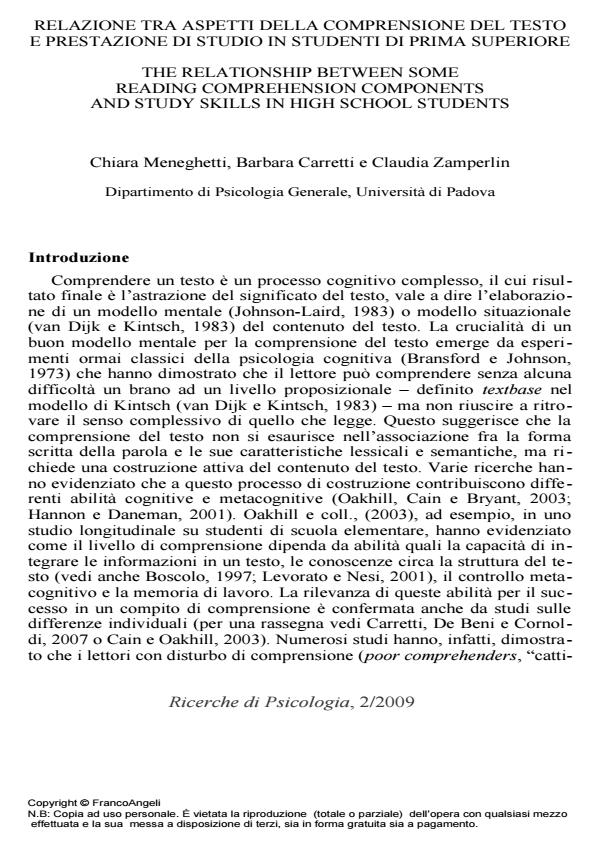Relazione tra aspetti della comprensione del testo e prestazione di studio in studenti di prima superiore
Journal title RICERCHE DI PSICOLOGIA
Author/s Chiara Meneghetti, Barbara Carretti, Claudia Zamperlin
Publishing Year 2010 Issue 2009/2
Language Italian Pages 18 P. 117-134 File size 528 KB
DOI 10.3280/RIP2009-002006
DOI is like a bar code for intellectual property: to have more infomation
click here
Below, you can see the article first page
If you want to buy this article in PDF format, you can do it, following the instructions to buy download credits

FrancoAngeli is member of Publishers International Linking Association, Inc (PILA), a not-for-profit association which run the CrossRef service enabling links to and from online scholarly content.
Several studies demonstrated that cognitive and metacognitive variables are involved in reading comprehension performance, such as making inferences and comprehension monitoring. The aim of present study was to test whether reading comprehension could by distinguished in ‘basic’ (referring to aspects more related to the text such as individuating the characters of the story, the event sequences etc.) and ‘complex’ (referring to cognitive and metacognitive competences such as to use flexible reading comprehension strategies in relation to type of texts) aspects; furthermore, the relationships between reading comprehension aspects and study performance was investigated. Participants were 183 students frequenting the first year of high school who were presented the following tasks: 1. a battery of tasks standardized in Italy measuring 10 aspects of reading comprehension abilities and 2. an objective study task measuring the recall of text information previously understand and memorized. Results of the Confirmatory Factor Analysis (CFA) showed that is possible to distinguish the reading comprehension in basic and complex aspects and latter ones accounted for the larger part of variance of study performance.
Chiara Meneghetti, Barbara Carretti, Claudia Zamperlin, Relazione tra aspetti della comprensione del testo e prestazione di studio in studenti di prima superiore in "RICERCHE DI PSICOLOGIA " 2/2009, pp 117-134, DOI: 10.3280/RIP2009-002006